Cooking is a form of art that requires a person to combine their natural talents along with a set of rules and regulations in order to master it. And it is these rules and regulations that can allow anyone to hone their cooking skills! Being aware of a few easy (but extremely helpful) cooking tricks can help reduce the time you spend in the kitchen as well as allow you to experiment with new dishes and flavors.
So, if you’ve ever wanted to learn – look no further! Here are 12 incredibly genius cooking tips, advocated by veteran chefs, that will boost your dishes to Master Chef quality with minimum effort!
1. Chili Peppers
Are you a fan of chili peppers but can’t seem to handle the level of spice? Well, here is a way to reduce the kick of chilies without altering their flavor profile. Simply slice open a chili and scrape out the seeds and veins! This helps to significantly reduce the level of spice in the chilies.
2. Crispy Potato Fries
Everyone craves for some crispy French fries from time to time. However, the number of calories these crunchy delights possess can make you feel rather regretful once you are done with eating them. Well, there is a way to enjoy crispy potatoes without the extra calories! Lightly coat the chopped potatoes in flour before baking them in the oven, and voilà! – you get the same level of crispiness you would expect to taste from fried potatoes.
3. Heavy Cream Substitute
Another way to keep a count of your calories is to make use of whipped egg whites instead of heavy cream in desserts.
I know, brilliant!
4. Cleaning Vegetables
When washing or cooking vegetables, it is important to keep in mind whether or not they need to be put in cold water or boiling water. A simple way to remember this is to keep in mind that vegetables that grow underground require cold water, while vegetables that grow above the ground require boiling water.
5. Egg Whites
As mentioned earlier, egg whites are a great substitute for heavy cream in desserts. A simple way to check the consistency of whipped egg whites is to turn the bowl upside down. If the egg whites are consistently whipped, they will remain in position.
6. Beets
Beets are an excellent source of vitamin A, folate, iron, nitrates, and other antioxidants (1). However, one can lose several of their vitamins and minerals in the cooking process once the beets are boiled. Hence, in order ensure that the beets are cooked correctly (sans any loss of vitamins or minerals) bake them in aluminum foil!
7. Dressing Salads
It is important to add salt to your salad before you dress it, and not after! This is because of the fact that the oils present in salad dressing prevent the salt from dissolving thus leading to uneven seasoning in your salad.
8. Boiling Pasta
The last thing you would want to see while cooking pasta is to see them stick to each other. One could always use a large amount of olive oil to separate them, but that isn’t very wallet-friendly. An inexpensive way to ensure that your pasta does not stick together after boiling is to use lots of water in the boiling process. For every 100g of pasta, add at least a liter of water to the boiling pot.
9. Pastry Dough
The secret behind any good pastry dough is to use the ingredients in the correct ratios. For instance, the weight of the flour used should equal that of the weight of the sugar used in the dough. Similarly, the weight of the eggs used in the dough should match the weight of the butter in the dough – it’s an exact science!
10. Lemon Juice
In order to maximize the amount of juice that you can extract from a lemon, make sure you follow a few simple steps. Firstly, place the lemon in a bowl of hot water. (Alternatively, you can microwave the lemon for 15-30 seconds.) Then massage the lemon by rolling it in the palm of your hand – this nifty trick helps bring out all the citrus juice present in the lemon!
Bonus? You can follow the same procedure when extracting juices from other citrus fruits as well.
11. Checking The Temperature Of Cooking Oil
Rather than purchasing an expensive cooking thermometer or dropping a small amount of dough and waiting for it to rise to the top, you can simply make use of a wooden spoon to assess if the oil is sufficiently hot to begin cooking. If you notice tiny air bubbles on the wooden spoon once placed in the oil, it is an indicator that the oil is ready to use for cooking.
12. Pasta Sauce
When you cook a pasta and sauce separately, it is important to not add oil to the pasta, as this prevents the sauce from saturating the pasta with its flavor when mixing them later on – the gravest of sins!
Employing these simple cooking tricks in your daily cooking regime can drastically reduce the time you spend in the kitchen as well as help you improve the overall finesse in the dishes that you create. So, no more kitchen nightmares – you’re all set to conquer any culinary terrors!
The post 12 Cooking Tricks Passed Down From The Most Prominent Chefs appeared first on STYLECRAZE.
from STYLECRAZE http://ift.tt/2GwoPxQ
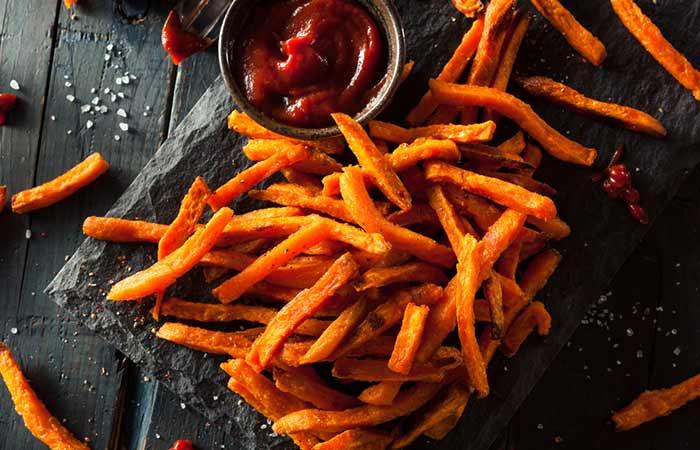
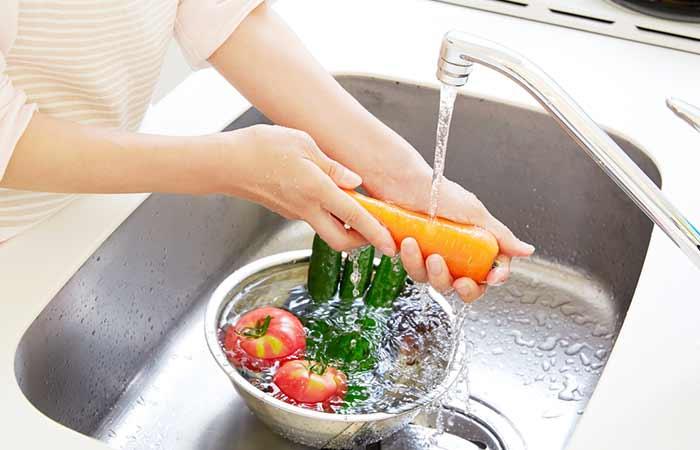
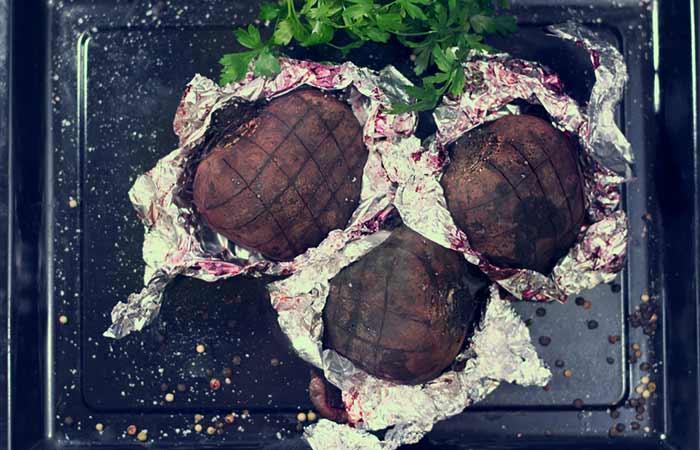
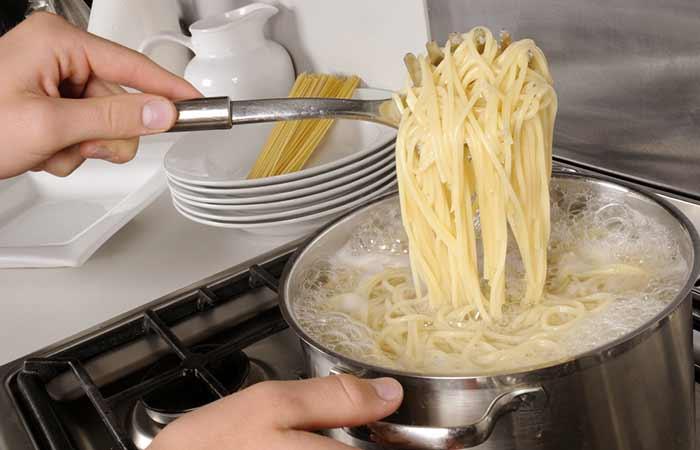
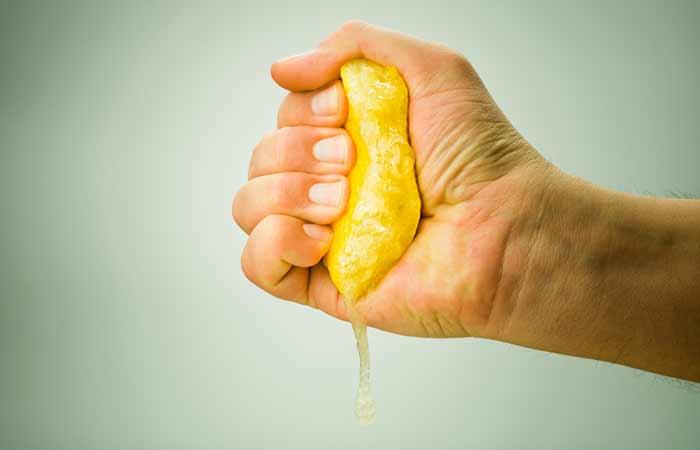
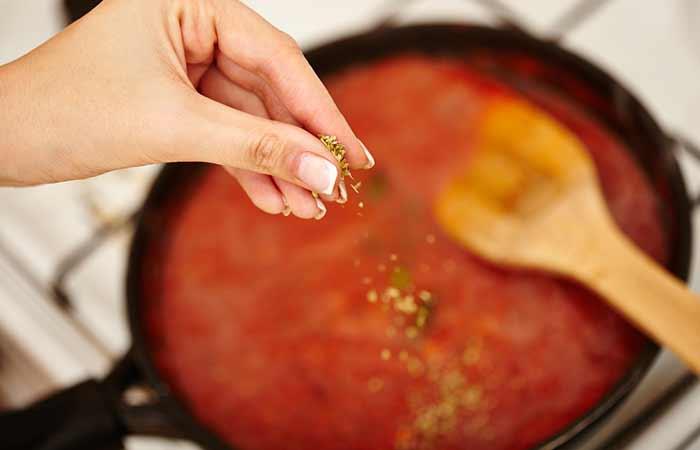
No comments:
Post a Comment